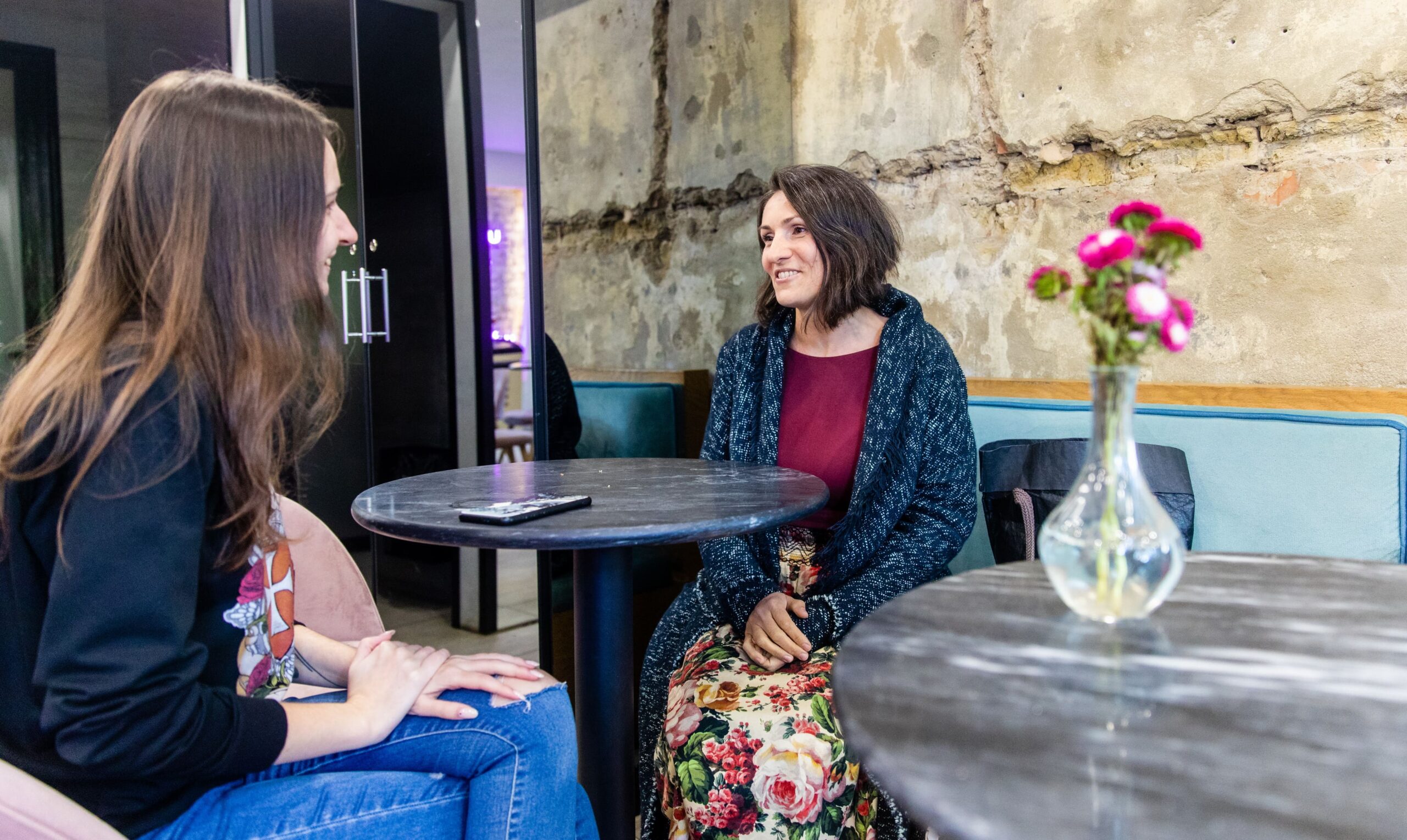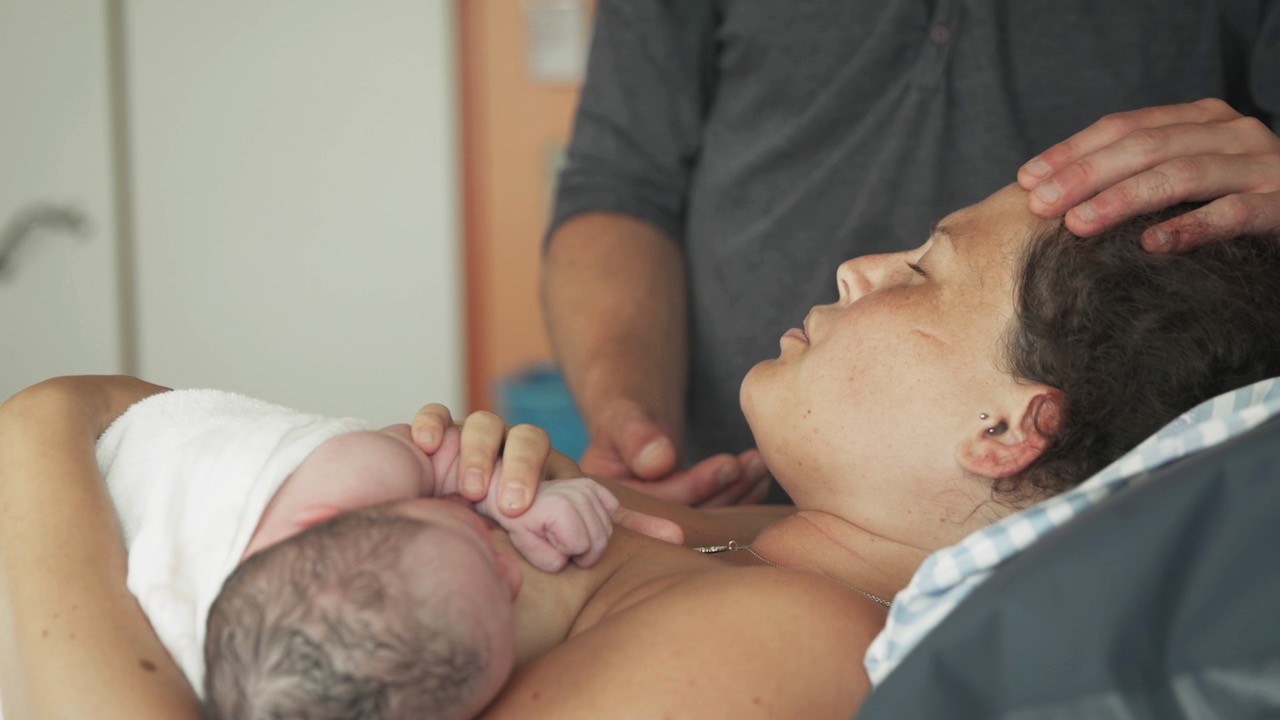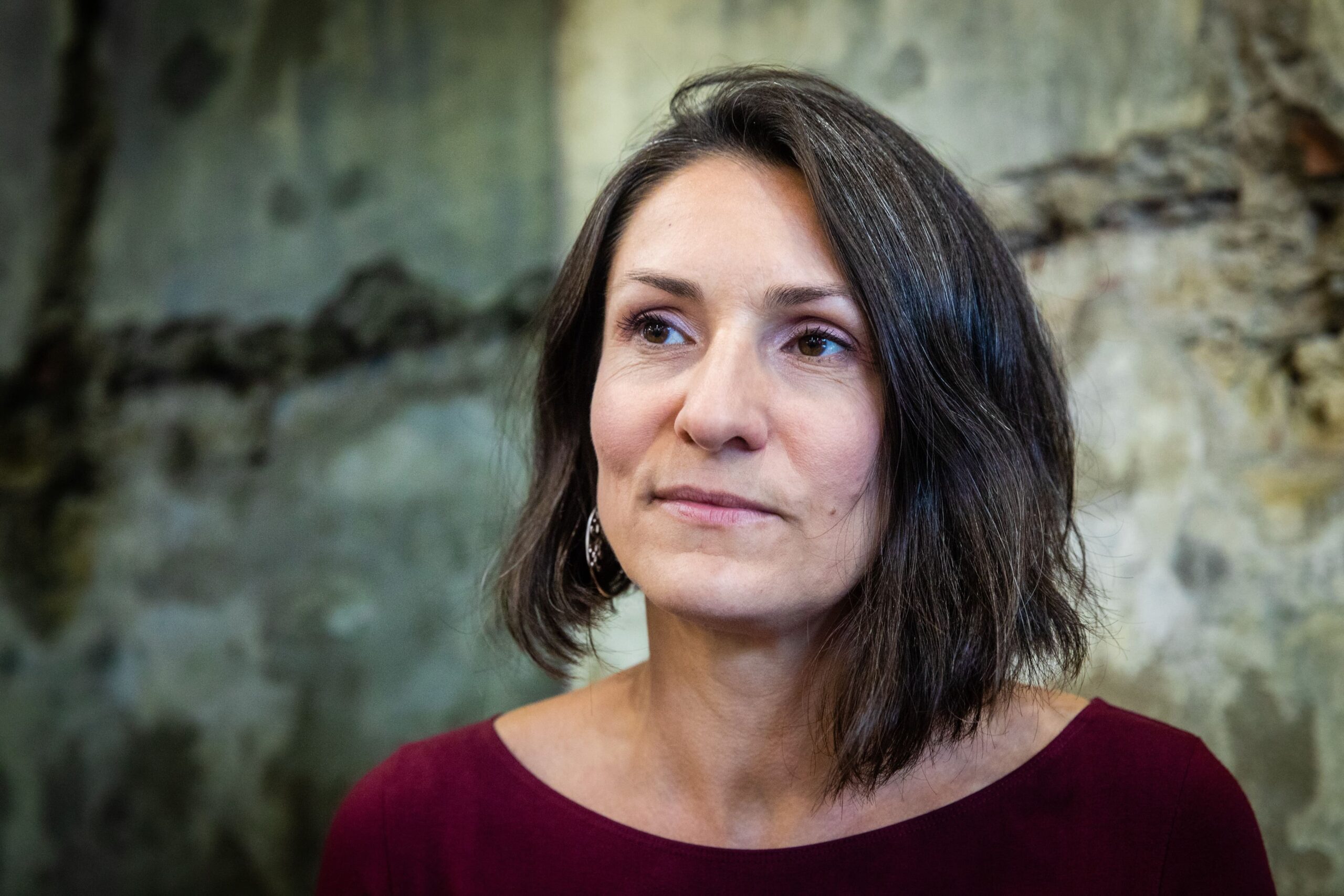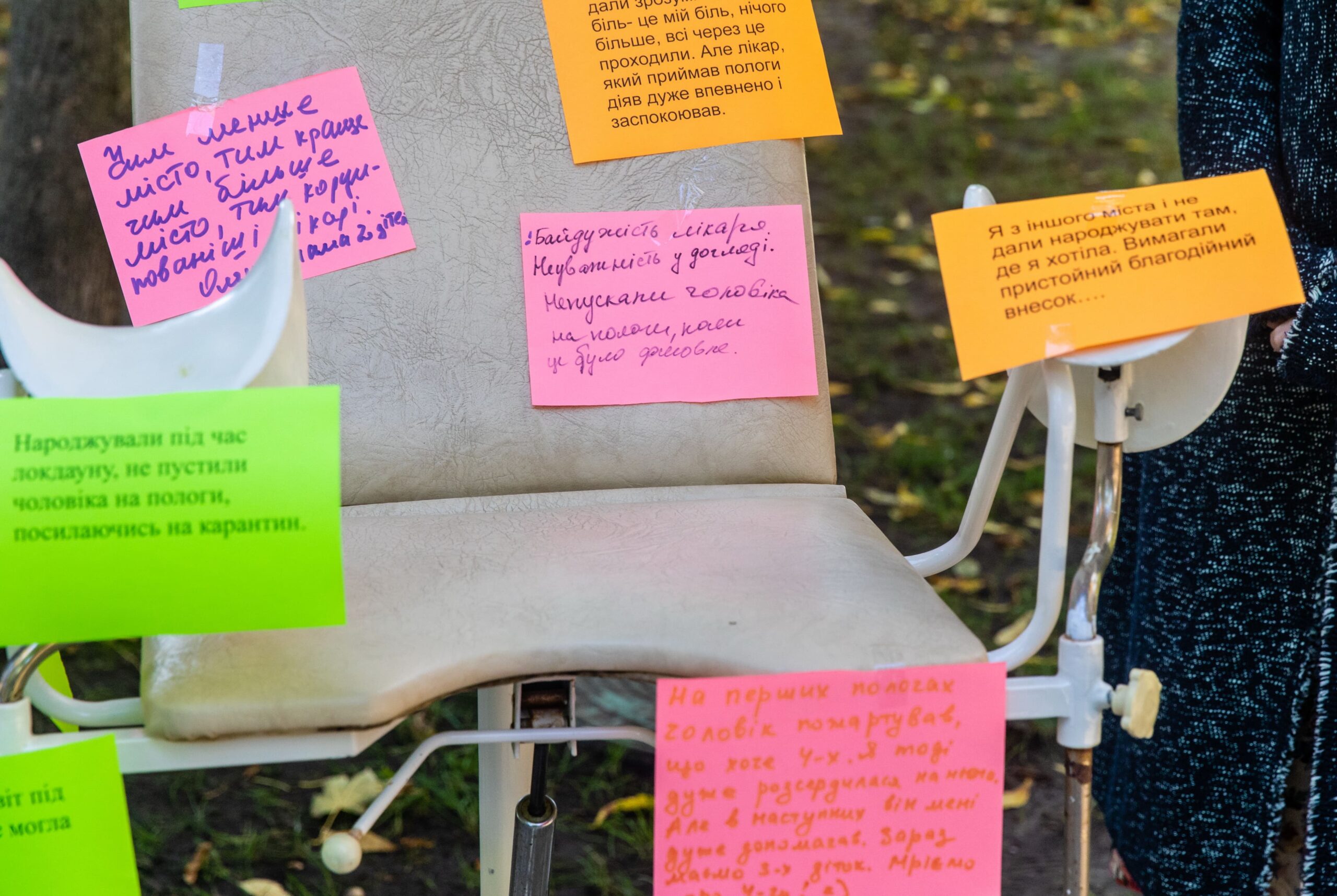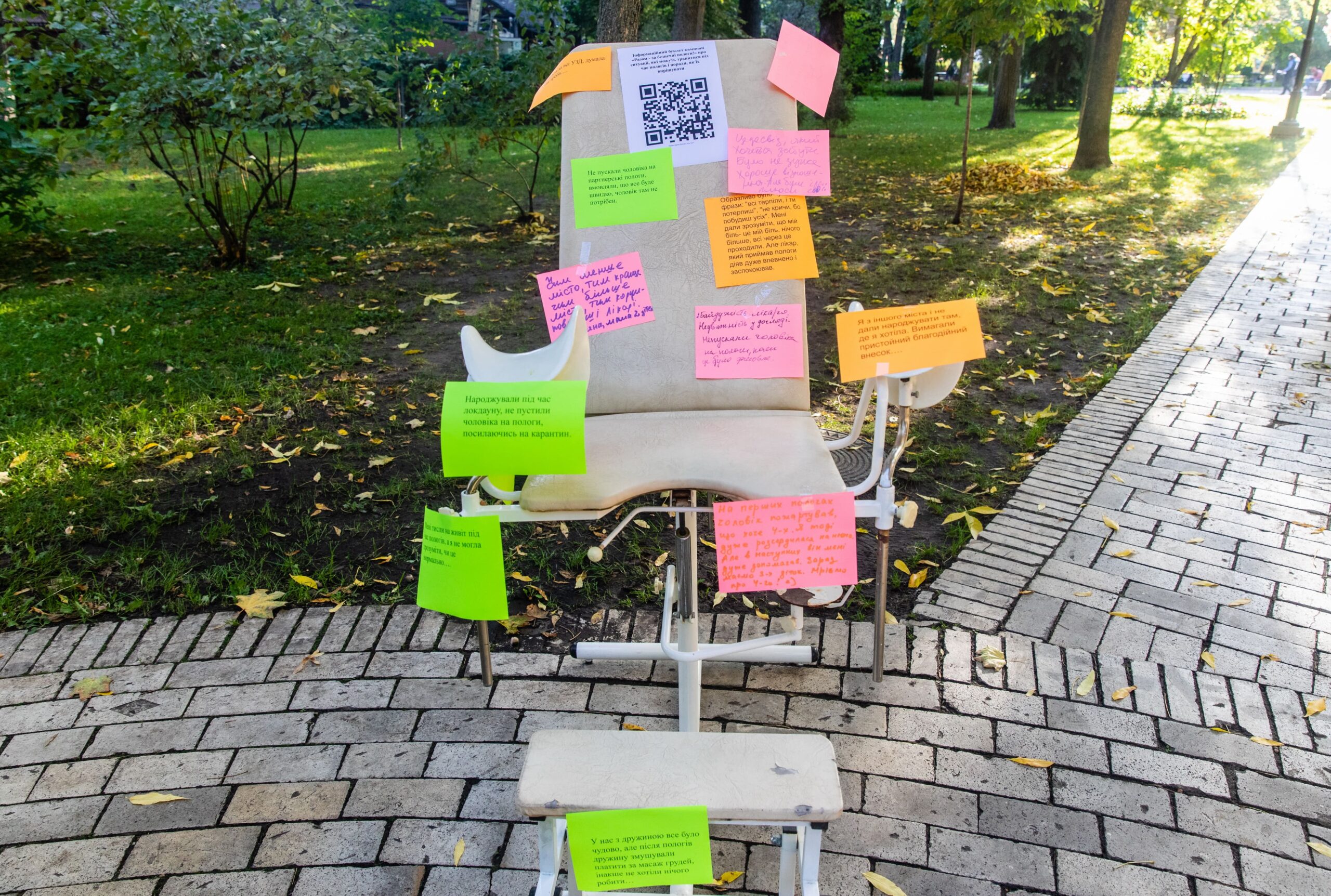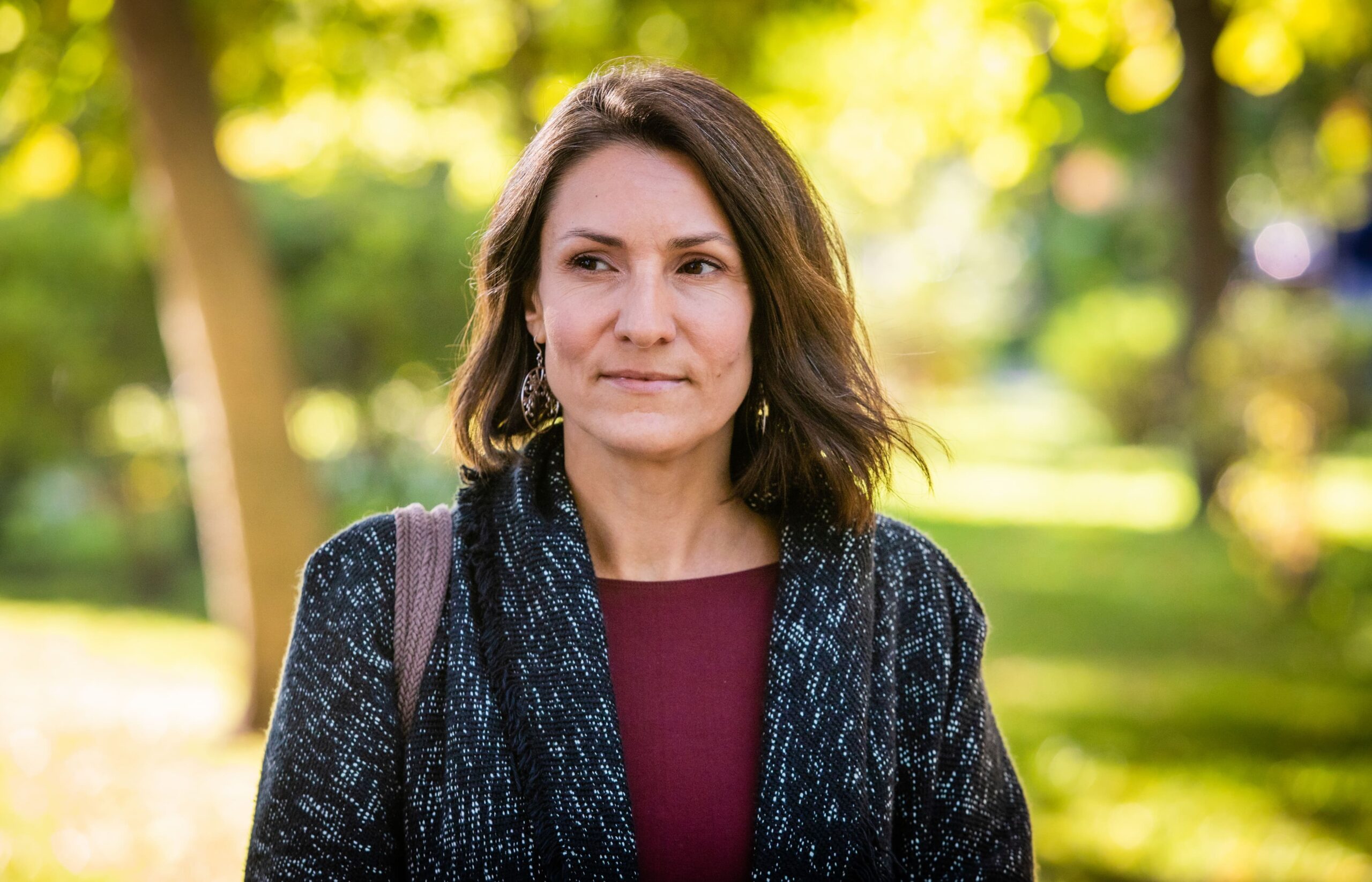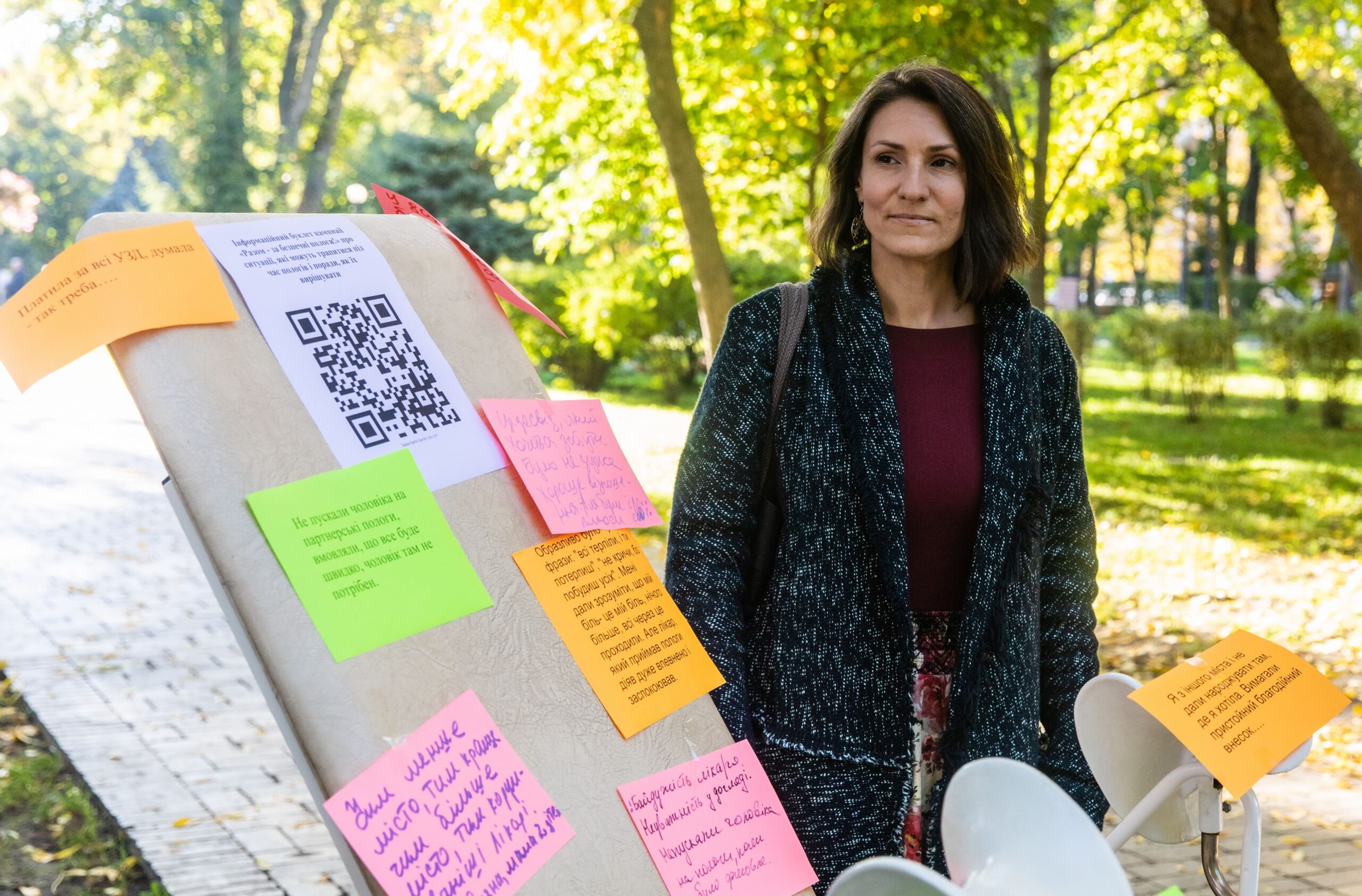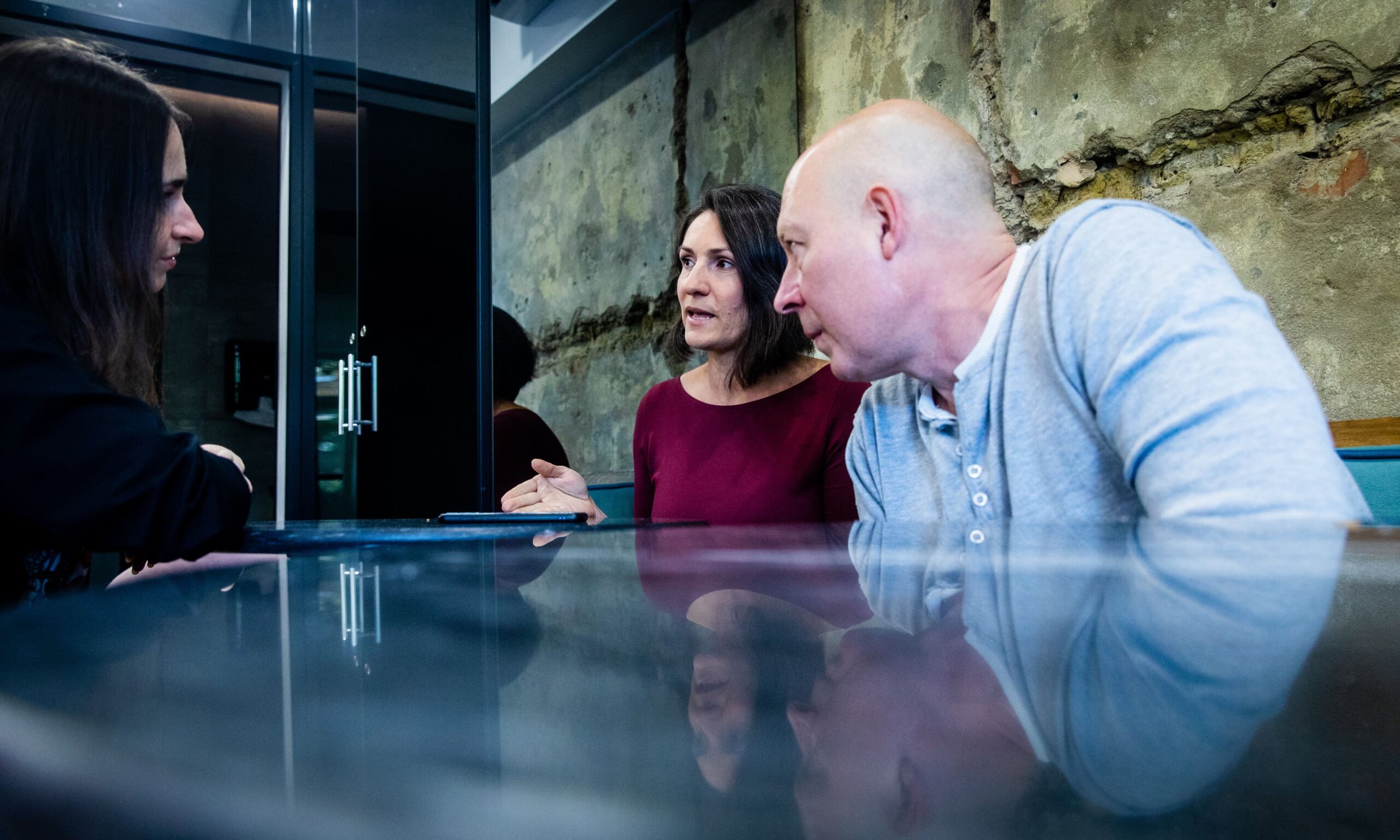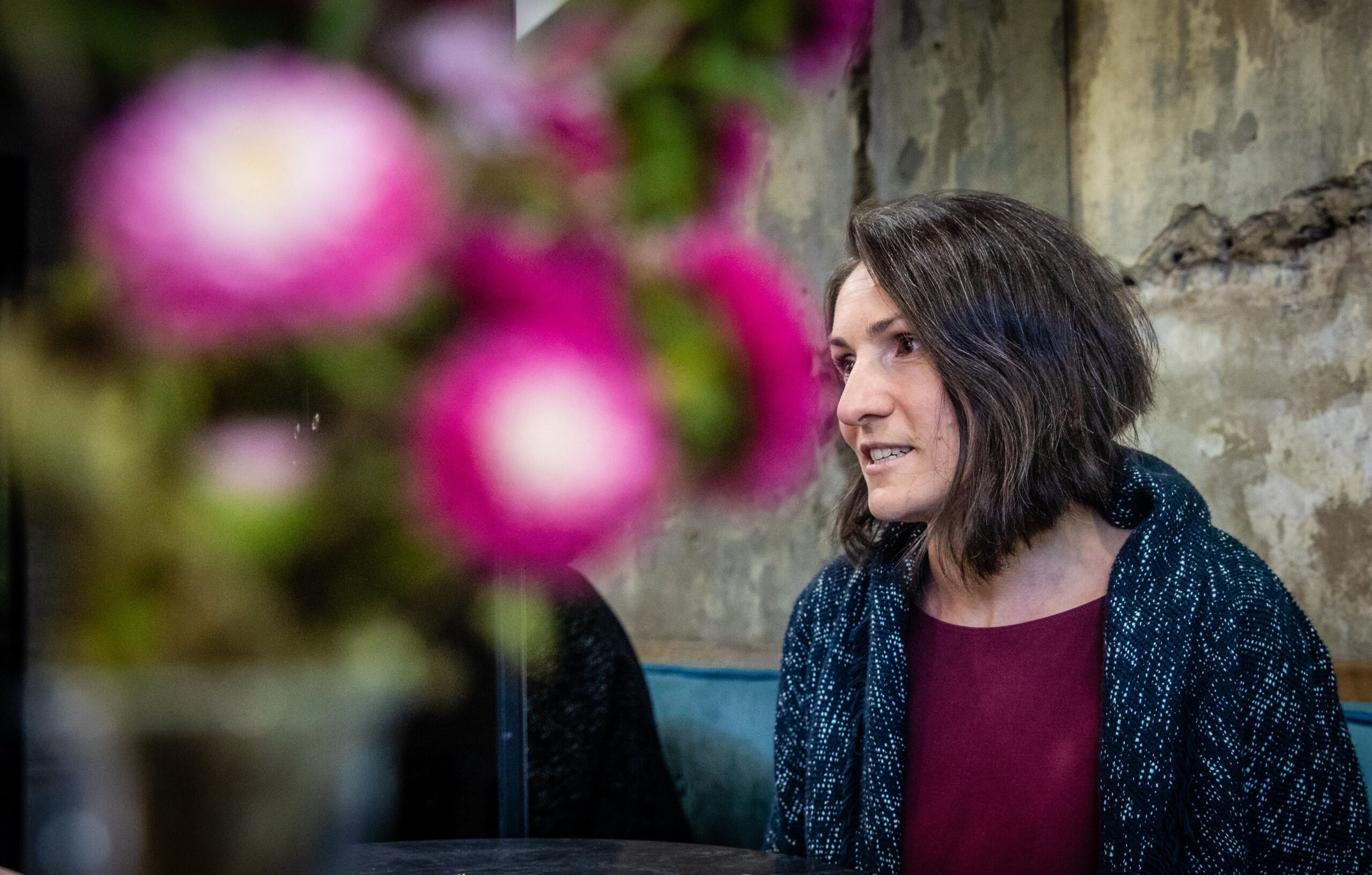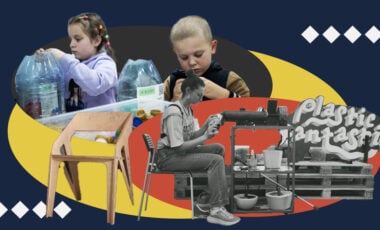"Ask your mother" or How women become unseen in the delivery room
Our legislation greatly lacks laws that would protect women from violence and pressure in maternity wards. And society lacks an understanding of what exactly they need protection from. The Docudays, a human rights documentary film festival, travels around Ukraine every autumn. This time, in 2021, the film Unseen is traveling together with the festival as part of the Docudays campaign, "Together For a Safe Birth!" A film is about women giving birth to a new life and risking their own. So, about every present and future mother.

The Rubryka journalist learned about the rights of women in labor and how they're defended, watched the film Unseen, talked to the director, who came to Ukraine at the invitation of the NGO Docudays, and did as the director advised, learned about her birth from her mother. And now we talk about why you should do it too.
"Ask your mother"
Friday night. A coffee shop in the middle of Shevchenko Park. Director Maia Martiniak is sitting in front of me and smiling warmly. I just told her I watched her Unseen in the morning (the film can be viewed at the DOCUSPACE online cinema). And how I imagined myself in the delivery room. And how glad I was that I didn't plan to go there soon.
Maia gathers her thoughts for a moment and then says:
"Ask your mother. Ask her to tell you how you were born. Who knows, maybe you both need that kind of conversation?" says Maia. And I listen to her. So, let's unwind the events a bit. For 22 years.
October 11, 1999. She was told that she would give birth on October 4, to "probably a boy." And today is the 11th. The contractions didn't begin in the evening or at night. The women nearby screamed in pain, kept her awake, and eventually became mothers. But her child still doesn't want to be born.
October 12. Doctors panic and cause contractions. At first, they can't find a vein, the catheter is inserted in fits and starts. IV line. One drug. Another drug. Nothing. And then the pain. Even the stronger pain. More often. Longer. The bad news is that the child is in a feet-first position. The obstetrician decides to speed up the birth and leans on her stomach and presses with her entire body. She presses for a long time. The mother is unconscious. The abdomen is blue. They pour water on her. And again. Pain again. Outside the window, she sees crosses, the dome of the cathedral. It's starting to snow. She wants it to be over.
17:40. The last push. She sees someone's hands lifting her child. As she silently looks at her with big blue eyes. Another second. Two more. Finally crying. Welcome to the world.
And then two decades pass, the child grows up and writes a text about that day. And she reads it and cries.
What's wrong with the view of baby delivery?
Yevhenia Kubakh, the co-founder of the PRYRODNI PRAVA UA public organization, explains that despite the medicine development, the rights of mothers are still violated, and it can cost both the physical and mental health of the mother and child.
The expert explains that according to a survey conducted by the NGO Pryrodni Prava UA in 2019, women during childbirth in Ukraine often face a violation of the informed consent principle (failure to notify about medical interventions or their conduct without consent or against the woman's refusal).
- amniotomy (opening of the amniotic sac),
- episiotomy (opening of the perineum),
- the use of the prohibited Kristeller method (pressure on the abdomen to accelerate the birth of a child),
- psychological pressure or intimidation, various forms of discrimination, such as age discrimination, the presence of chronic diseases, social status, etc.
An episiotomy (opening of the perineum) was performed on one of the heroines of the Unseen. In the film, the woman recalls her traumatic experience, says that she refused the procedure, asked not to do it, but the doctors didn't stop. In addition, they didn't explain why they decided to make an incision. After that, the woman began to have health problems. Years later, she still feels pain and can't live a sexual life.
There are cases when, despite the mother disagreeing, doctors have to perform certain manipulations to save her life or health. In critical cases, consent isn't required, but after all the necessary manipulations, the woman should still be explained what and why was done to her.
The film's director says:
"I spent the first two years looking for information and talking to experts. And through them I found people… It took a long time because society denies that there's postpartum trauma. Still, I've collected hundreds of stories with negative experiences."
Maia is in Ukraine for the first time. And within the Docudays, besides Kyiv, she gets acquainted with several other cities. The director compares Ukrainians with her Slovak compatriots. She says Ukrainians are more open while Slovakia remains quite conservative. In particular, with the discussion of birth trauma.
Together for a safe birth!
On October 1, activists of the NGO Docudays undoubtedly attracted attention in Taras Shevchenko Park. They put a gynecological chair in the middle of the park and asked passers-by to attach stickers with their children's birth stories.
In addition to the opportunity to speak anonymously, everyone received booklets with information on how to make childbirth safe and what rights they should know.
As part of the "Together for a Safe Birth" campaign, Docudays launched a website of the same name, which collected information on guarantees for pregnant women provided by the state, Ukrainian and international experience, as well as situations that may occur during childbirth and advice on how to solve them.
"The idea is that we have to do something so that young people, who have a whole life ahead of them, aren't afraid of childbirth. That's what we're working on. But these changes aren't just for young people. But also for women who've already gone through childbirth and received certain traumas. For them, the feeling that society is changing for the better will be like painkillers," Maia Martiniak said a little later.
The director says that while shooting in three different countries, she could see different experiences. Maia filmed in maternity wards on her own, without a team, to preserve women's privacy. When I ask how she felt when she heard the cries of the mothers and the first cries of their children, Maia said:
"What I felt, you can feel for yourself when you watch the movie. There was a gloomy atmosphere in Slovakia. There, the women felt that they didn't have real support and help. It was very difficult. But in Denmark, the experience was just wonderful. And it was the one that inspired me not to give up the film, but to continue filming. There I saw that childbirth can be incredible.
When I was there for the second time, I received even more support from the staff and obstetricians. They offered me something to shoot. We spent time together, discussing this topic. And there I realized how much worse the experience is in Slovakia. When you have nothing to compare with, you think that it should be like that. But no."
Yevhenia Kubakh, the co-founder of the Pryrodni Prava UA, says the situation in Ukraine also needs to be better. The legislation needs to be improved.
"Women who weren't seriously injured and whose children weren't hurt during childbirth may be affected by psychological pressure or humiliation, but it will be very difficult to prove it in court," Yevhenia explains.
"It has to be good"
"The peculiarity of our legislation is that it doesn't clearly define women's rights during childbirth. There are the Law of Ukraine 'Fundamentals of the Legislation of Ukraine on Health Care,' which defines the general rights of patients; there are packages of the National Health Service of Ukraine that provide free medical services during pregnancy and childbirth, but, for example, there's no valid medical protocol of normal child delivery, which was Order № 624 'Normal child delivery,' which expired in 2014," Yevhenia Kubakh continues.
According to her, this document best described the rights of women and the actions of medical staff during childbirth. Maternity hospitals continue to rely on it, but it no longer has legal effect.
When Maia Martiniak and I come to the topic of understanding the trauma of childbirth by society, she says that the birth of children is perceived as something ordinary. Few people understand what a woman's body goes through and what impact it has on her psychological state.
"The trauma is related to something terrible and painful. We want to see a happy life. We want to be happy. When something bad happens, we try not to notice it to protect ourselves. We create a wonderful picture, they say, what could be better than the birth of a child? We continue this narrative constantly. Still, it has to be good. A woman can't face disrespect, manipulation, a kind of violence. When we talk about birth, we always think about the health of the baby. But the traumatized psyche of the mother will affect the child. We can't forget about the mother," the director emphasizes.
Besides the emotional and physical condition of women in labor, the film also explains what doctors are going through. In particular, the existence of a kind of hierarchy among physicians, where obstetricians sometimes feel lonely, with no one to share what they go through during the baby delivery.
Maia says that the social perception of childbirth needs to change. Then the attitude towards women, future mothers, and doctors who help them become mothers will change.
How to make the delivery safe
When going to the delivery room, you should be well aware of your rights and what can await you. Here are some tips to help you prepare.
- Discuss in detail with the doctor who manages your pregnancy, how the birth should take place, ask what procedures are safe for you and which are not.
- Remember that you have the right to give birth in a position that is comfortable for you and refuse medical manipulations that you consider unnecessary.
- Make a birth plan in advance and write which manipulations you agree to and in which cases, and which you do not. Get to know the doctors who will deliver the baby.
- Use the "Together for a Safe Birth" website, where you'll find detailed information about your rights and how to effectively defend them. There you'll find contacts of organizations that can assist in case of violation of your rights.



